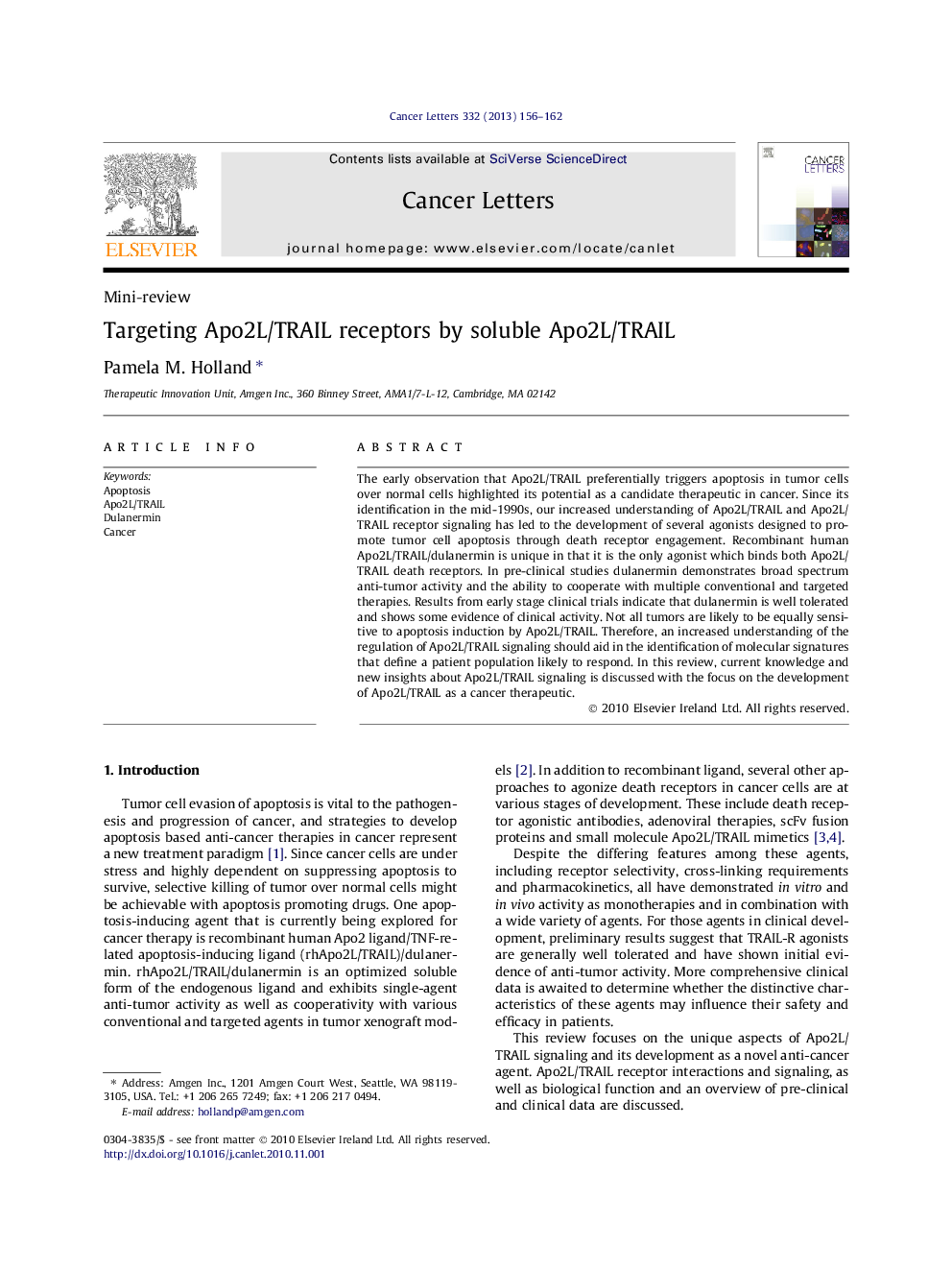| Article ID | Journal | Published Year | Pages | File Type |
|---|---|---|---|---|
| 2112949 | Cancer Letters | 2013 | 7 Pages |
The early observation that Apo2L/TRAIL preferentially triggers apoptosis in tumor cells over normal cells highlighted its potential as a candidate therapeutic in cancer. Since its identification in the mid-1990s, our increased understanding of Apo2L/TRAIL and Apo2L/TRAIL receptor signaling has led to the development of several agonists designed to promote tumor cell apoptosis through death receptor engagement. Recombinant human Apo2L/TRAIL/dulanermin is unique in that it is the only agonist which binds both Apo2L/TRAIL death receptors. In pre-clinical studies dulanermin demonstrates broad spectrum anti-tumor activity and the ability to cooperate with multiple conventional and targeted therapies. Results from early stage clinical trials indicate that dulanermin is well tolerated and shows some evidence of clinical activity. Not all tumors are likely to be equally sensitive to apoptosis induction by Apo2L/TRAIL. Therefore, an increased understanding of the regulation of Apo2L/TRAIL signaling should aid in the identification of molecular signatures that define a patient population likely to respond. In this review, current knowledge and new insights about Apo2L/TRAIL signaling is discussed with the focus on the development of Apo2L/TRAIL as a cancer therapeutic.
